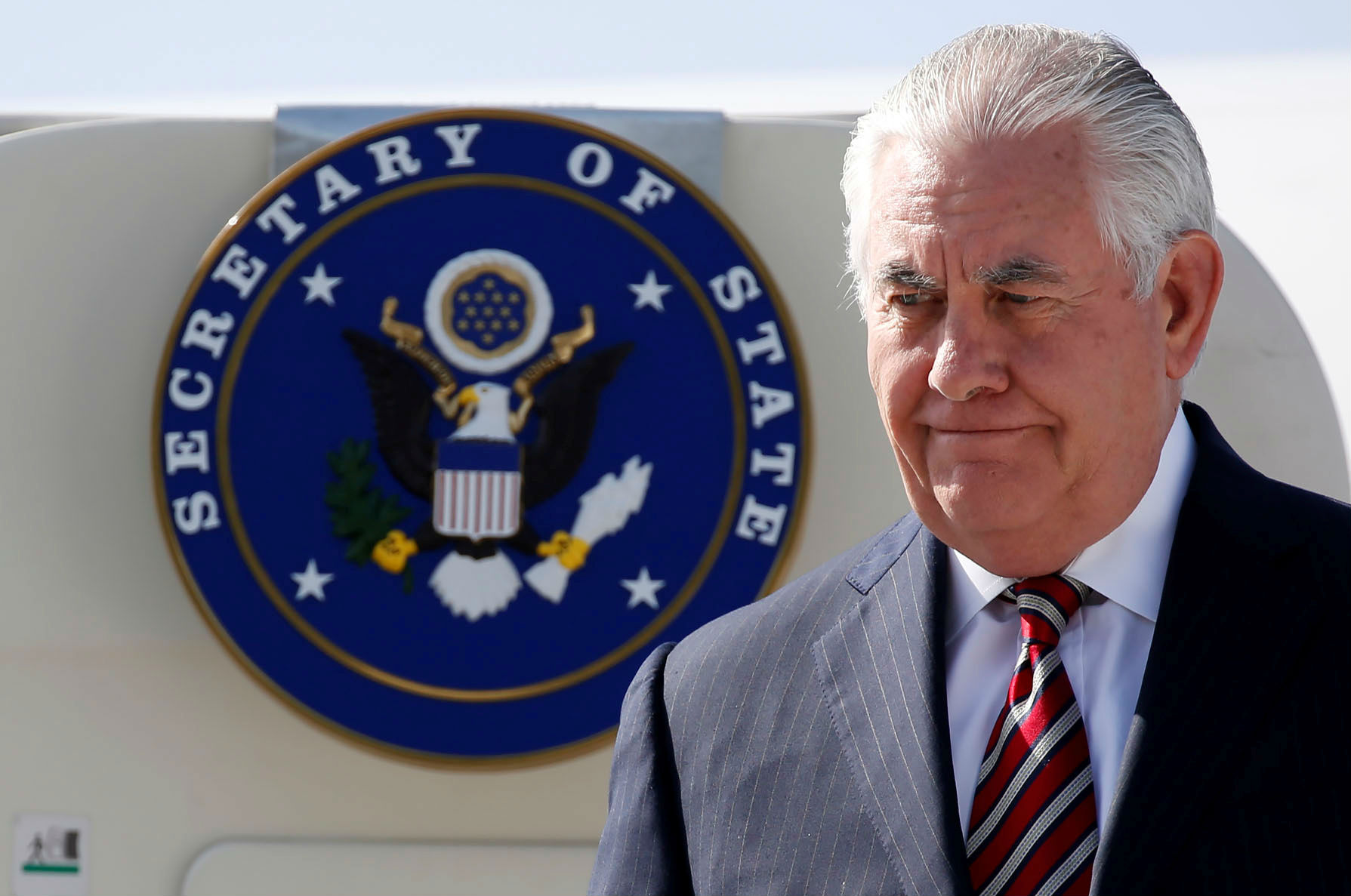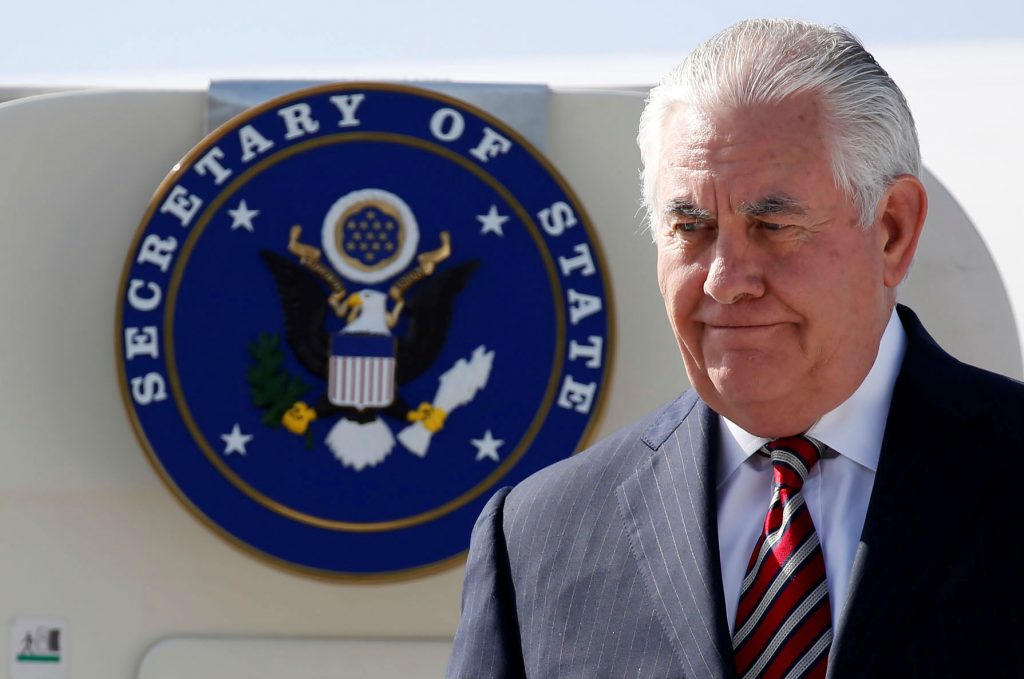 On March 13, Secretary of State Rex Tillerson was sacked. US President Donald Trump plans to replace him with former CIA director Mike Pompeo.
On March 13, Secretary of State Rex Tillerson was sacked. US President Donald Trump plans to replace him with former CIA director Mike Pompeo.
UkraineAlert asked its experts the following: What does Pompeo think about Russian President Vladimir Putin and his aggressive foreign policy? What does the leadership change mean for US policy toward Ukraine and Russia? Do you expect any changes? Will he support US Special Representative for Ukraine Ambassador Kurt Volker’s efforts to bring peace to Ukraine?
Anders Åslund, Senior Fellow at the Atlantic Council:
While Rex Tillerson had many differences with President Donald Trump, Russia does not appear to have been one of them. Trump and Tillerson appeared to have similar attitudes to Russia and Trump did include Tillerson in his formal meeting with President Vladimir Putin at the G-20 meeting in Hamburg in July 2017. Before joining the Trump administration, Mike Pompeo displayed a tougher attitude to Russia than Tillerson, but he has made his mark by having a good relationship with Trump and being loyal to him. Therefore, the basic expectation is that US policy to Russia will not change. That would also pertain to Ukraine.
Michael Carpenter, former US Deputy Assistant Secretary of Defense, Senior Director at the Biden Center, and Nonresident Senior Fellow at the Atlantic Council:
Tillerson’s tenure at the State Department was a textbook case of failed leadership but his foreign policy instincts were more traditional, meaning he was often out of synch with the president on key issues like Russia, Iran, and North Korea.
His departure will likely signal more chaos initially since Mike Pompeo will bring more partisanship and rancor, an uncertain relationship with key Tillerson appointees, and a more distant relationship to Defense Secretary James Mattis, whom Tillerson had befriended. We can expect to see a more dysfunctional, unpredictable, disjointed, and dangerous foreign policy moving forward.
Ariel Cohen, Nonresident Senior Fellow at the Atlantic Council’s Global Energy Center and Eurasia Center:
Pompeo’s views on Russia are actually tougher than Tillerson’s, and he is more aware of the intelligence/covert action threats coming from Russia. Cyber, social media outrages, “soft power,” and outright aggression, like the poisoning in the UK, were all on his plate at the CIA.
While Tillerson paid lip service to criticism of Russia, I expect Pompeo to be much tougher on the Kremlin than his predecessor.
Jeffrey Gedmin, Senior Fellow at the Atlantic Council and Georgetown University’s School of Foreign Service, and Senior Adviser at Blue Star Strategies:
We have hunches and hints of what Secretary Pompeo will do and pursue. Let’s read tea leaves. I’d like to suggest a vital and related question, however: How will Secretary Pompeo work with our European allies?
Apropos Ukraine, for instance. For the hawks among us, there is no hardline vis-a-vis Vladimir Putin without Germany. And with Berlin things are wobbly. Distrust of President Trump runs across the political spectrum. There’s dismay over American tariffs. There is also Germany’s own domestic politics.
Angela Merkel has her challenges. There’s still a heated debate, for example, about the roughly one million refugees admitted to Germany since 2015. There is fretting in German industry circles that Washington will soon lean hard on the EU over Iran.
In one sense, watch Pompeo and the administration on Iran this year, if you want a sense about Russia sanctions next year.
In another sense, are we headed toward the point where America First collides with Germany and EU first?
John Herbst, Director of the Eurasia Center and former US Ambassador to Ukraine:
Tillerson’s ouster has been rumored for months. It is not clear why President Trump removed him now. CIA Director Pompeo has established his bona fides as a national security player during his time at Langley, so this change is not in itself disruptive.
Pompeo’s outlook on many issues is also similar to Tillerson’s. They have both, for instance, urged stronger support for Ukraine in fighting against Moscow’s war of aggression and, more broadly, in pushing back against the Kremlin’s provocative policies. So this change in personnel does not herald policy changes. It does, however, speak to the president’s need to stir the pot and, of course, political Washington lives for this kind of drama.
Adrian Karatnycky, Senior Fellow at the Atlantic Council:
Pompeo has a strong working relationship with Ukraine’s national security team. Unlike some at the State Department, he understands that the job in Ukraine is maintaining stability and preparedness in the face of Russian aggression and potential destabilization. He is familiar with and has a good rapport with President Petro Poroshenko, Foreign Minister Pavlo Klimkin, and SBU Director Hrytsak.
He will support sanctions and increased efforts to enhance Ukraine’s security, while supporting a pragmatic approach to reforms. You will not hear from him such nonsense as Tillerson’s comment that “It serves no purpose for Ukraine to fight for its body in the Donbas if it loses its soul to corruption.” He knows that Ukraine’s survival is paramount and that the war on corruption is a desirable end that must be pursued without destabilizing the country in a wave of protests and cynicism.
Alina Polyakova, Fellow at the Brookings Institution:
Pompeo has a sober view of Russia and has consistently spoken out against Russian aggression. He also seems to have the president’s ear and trust in a way that Tillerson did not. It’s likely that he will advocate for a strong policy to deter Russia. This is good news for Ukraine.
Alexander Vershbow, Distinguished Fellow at the Atlantic Council’s Brent Scowcroft Center on International Security:
Pompeo has taken a realistic line in his public comments on Russia, acknowledging Russian interference in the 2016 elections and Russian aggressiveness toward Ukraine. I therefore expect him to support a continuation of the current administration policy, aimed at achieving a political solution to the conflict in Donbas using diplomacy backed by sustained pressure on Moscow in the form of sanctions and provision of defensive weapons to Ukraine. To get President Putin’s attention, Pompeo would be wise to engage more directly with top Russian leaders to reinforce the efforts of Ambassador Kurt Volker.
Melinda Haring is the editor of the UkraineAlert blog at the Atlantic Council. She tweets @melindaharing.
Image: Secretary of State Rex Tillerson arrives at Djibouti–Ambouli International Airport in Djibouti, March 9, 2018. REUTERS/Jonathan Ernst
